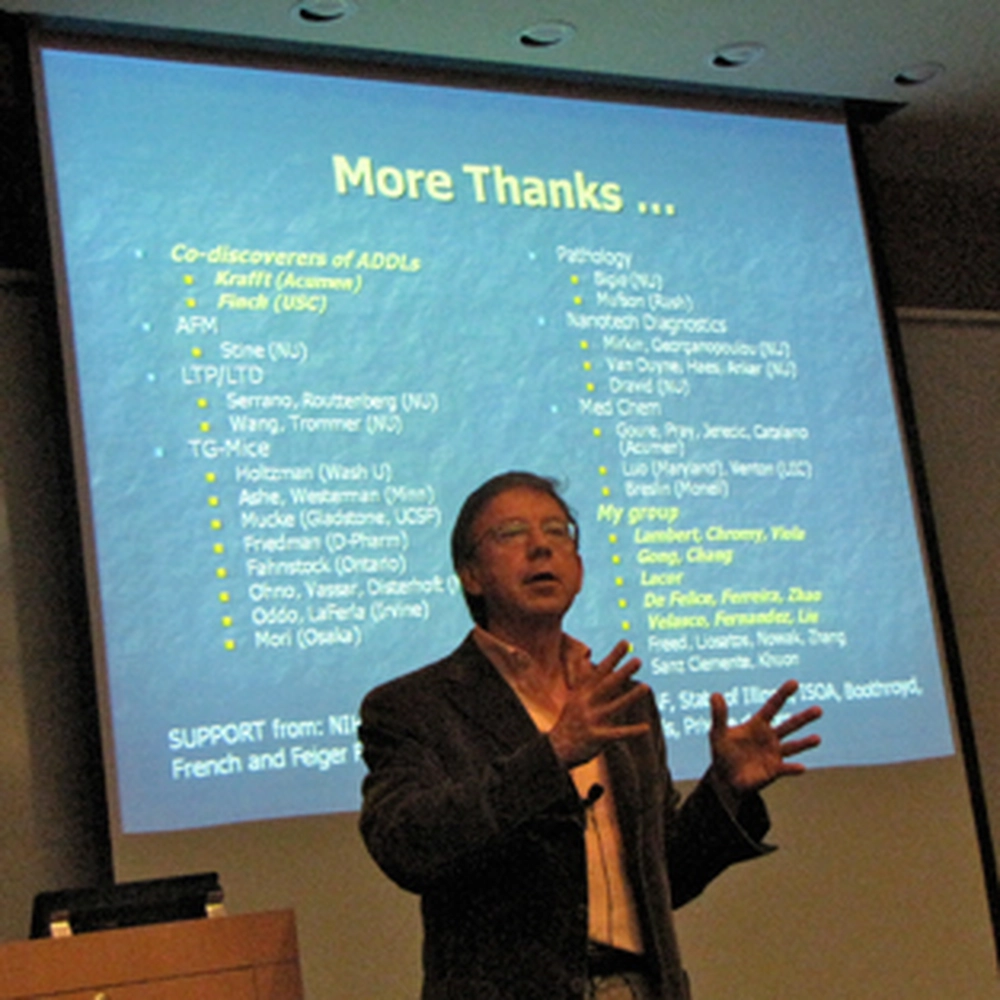
On November 18 at this year's MCB Director's Seminar, special guest Northwestern University Professor of Neurobiology William L. Klein delivered the talk: "Synaptotoxic AΒ Oligomers (ADDLs): A Molecular Basis for the Cause, Diagnosis and Treatment of Alzheimer's Disease."
On November 18 at this year's MCB Director's Seminar, special guest Northwestern University Professor of Neurobiology William L. Klein delivered a lecture entitled "Synaptotoxic AΒ Oligomers (ADDLs): A Molecular Basis for the Cause, Diagnosis and Treatment of Alzheimer's Disease."
Dr. Klein reports, "We have discovered novel neurotoxins that appear to account for memory failure in Alzheimer’s disease. We call these molecules “ADDLs” and they comprise small soluble oligomers of the amyloid Β peptide. ADDLs target memory-linked synapses and interfere with mechanisms essential for memory formation. We do not know how this happens at the molecular level, but current experiments are designed to discover specific ADDL toxin receptors and elucidate how these toxin receptors disrupt memory-linked synaptic structure and signaling. Structural studies of ADDLs, which are tremendously elevated in AD-afflicted brain, should play an important role in developing the first effective therapeutic Alzheimer’s drugs and vaccines. Discovering how ADDLs disrupt memory formation ultimately may give new insight into molecular memory mechanisms as well as the brain’s potential for memory enhancement."
The lecture was preceded by an introduction from Dr. Stephen Sligar. Following Dr. Klein's through talk, illustrated by multiple slides, Dr. Klein took questions from the audience. A reception followed in the atrium, at which Dr. Klein circulated with the MCB community.
